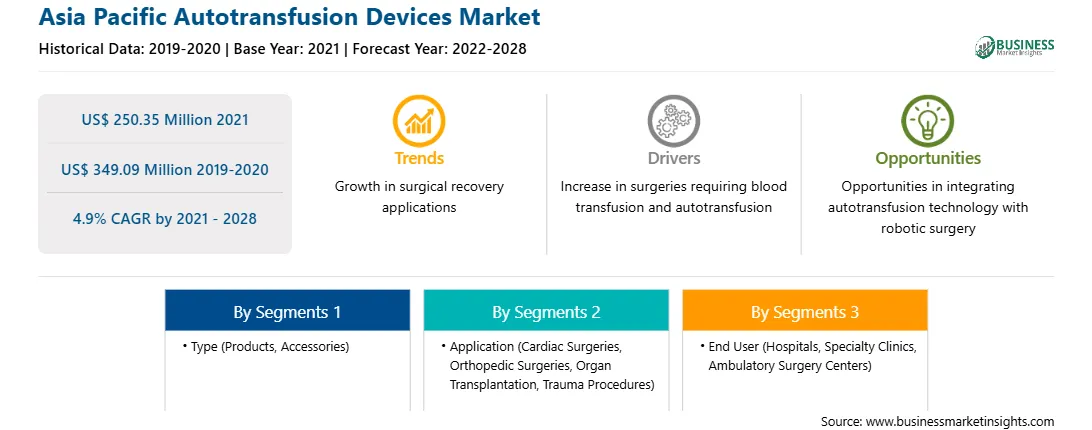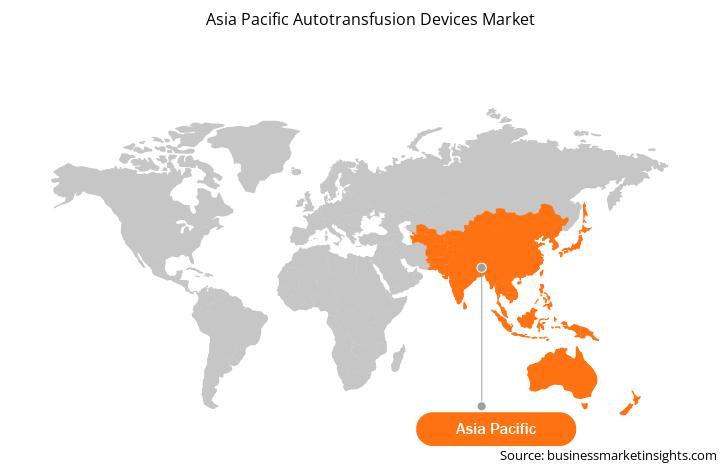Healthcare budget allocations help countries in strengthening the workforces and improving the productivity of this sector, thereby contributing to economic performance. Rapid economic developments in India, China and other countries in Asia have augmented the healthcare expenditure in these countries, which enables them to establish better medical service infrastructure. Developing countries are significantly focusing on expanding and improving their healthcare facilities and services by leveraging technological advancements. The developing nations are focusing on introducing advanced healthcare facilities and services to overcome critical health issues. For instance, the government of India, through its National Health Authority agency, has implemented Ayushman Bharat – Pradhan Mantri Jan Arogya Yojana (AB-PMJAY). This scheme has facilitated free/affordable treatment for cancer patients in the country. As per the data published by the National Health Authority of India, about 470,133 cancer cases have been treated under AB-PMJAY. These government initiatives are likely to provide lucrative opportunities for market players to introduce advanced technologies in autotransfusion devices, which, in turn, would propel the growth of the autotransfusion devices market during the forecast years.
Strategic insights for the Asia Pacific Autotransfusion Devices provides data-driven analysis of the industry landscape, including current trends, key players, and regional nuances. These insights offer actionable recommendations, enabling readers to differentiate themselves from competitors by identifying untapped segments or developing unique value propositions. Leveraging data analytics, these insights help industry players anticipate the market shifts, whether investors, manufacturers, or other stakeholders. A future-oriented perspective is essential, helping stakeholders anticipate market shifts and position themselves for long-term success in this dynamic region. Ultimately, effective strategic insights empower readers to make informed decisions that drive profitability and achieve their business objectives within the market.

| Report Attribute | Details |
|---|---|
| Market size in 2021 | US$ 250.35 Million |
| Market Size by 2028 | US$ 349.09 Million |
| Global CAGR (2021 - 2028) | 4.9% |
| Historical Data | 2019-2020 |
| Forecast period | 2022-2028 |
| Segments Covered |
By Type
|
| Regions and Countries Covered | Asia-Pacific
|
| Market leaders and key company profiles |
The geographic scope of the Asia Pacific Autotransfusion Devices refers to the specific areas in which a business operates and competes. Understanding local distinctions, such as diverse consumer preferences (e.g., demand for specific plug types or battery backup durations), varying economic conditions, and regulatory environments, is crucial for tailoring strategies to specific markets. Businesses can expand their reach by identifying underserved areas or adapting their offerings to meet local demands. A clear market focus allows for more effective resource allocation, targeted marketing campaigns, and better positioning against local competitors, ultimately driving growth in those targeted areas.

The Asia-Pacific autotransfusion devices market is segmented on the basis of type, application, end user, and country. The market, by type, is bifurcated into products and accessories. In 2021, the accessories segment held a larger market share. The market for the products segment is further segmented into intraoperative autotransfusion systems, postoperative autotransfusion systems, and dual-mode autotransfusion systems. In 2021, the intraoperative autotransfusion systems segment held the largest market share. The Asia-Pacific autotransfusion devices market, by application, is segmented into cardiac surgeries, orthopedic surgeries, organ transplantation, trauma procedures, and others. The cardiac surgeries segment held the largest market share in 2021. Based on end user, the market is segmented into hospitals, specialty clinics, and ambulatory surgical centers. The hospitals segment held the largest share of the market in 2021. Based on country, the market is segmented into China, Japan, India, South Korea, Australia, and the rest of Asia-Pacific. Japan contributed a substantial share in 2021.
BD, Braile Biomedica, Fresenius SE & Co. KGaA, Haemonetics Corporation, LivaNova PLC, Medtronic, Redax S.p.A., SARSTEDT AG and Co. KG, Teleflex Incorporated, and Zimmer Biomet are among the leading companies in the Asia-Pacific autotransfusion devices market.
The Asia Pacific Autotransfusion Devices Market is valued at US$ 250.35 Million in 2021, it is projected to reach US$ 349.09 Million by 2028.
As per our report Asia Pacific Autotransfusion Devices Market, the market size is valued at US$ 250.35 Million in 2021, projecting it to reach US$ 349.09 Million by 2028. This translates to a CAGR of approximately 4.9% during the forecast period.
The Asia Pacific Autotransfusion Devices Market report typically cover these key segments-
The historic period, base year, and forecast period can vary slightly depending on the specific market research report. However, for the Asia Pacific Autotransfusion Devices Market report:
The Asia Pacific Autotransfusion Devices Market is populated by several key players, each contributing to its growth and innovation. Some of the major players include:
The Asia Pacific Autotransfusion Devices Market report is valuable for diverse stakeholders, including:
Essentially, anyone involved in or considering involvement in the Asia Pacific Autotransfusion Devices Market value chain can benefit from the information contained in a comprehensive market report.